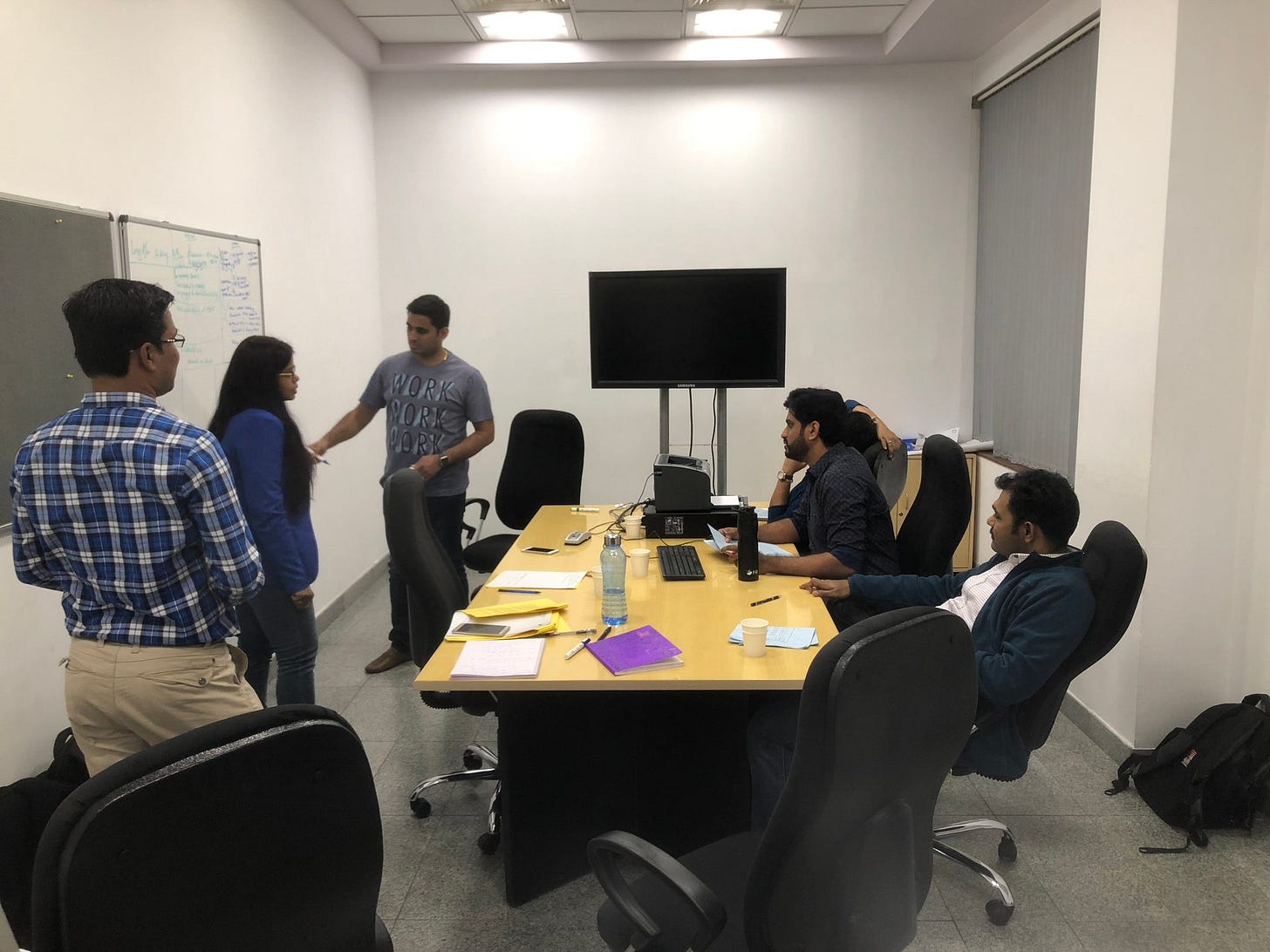Close your eyes for a second and think about the last negotiation situation you had with someone over a deal or an agreement or an argument , it might be with your parents, siblings, spouse, children, manager, recruiter, a street vendor, tuk-tuk driver, a supplier, our customers, etc., recall your motivation in making a decision?
To win or lose was the major influencer of the decision during our negotiation
Either we accept the deal with an agreement or try to persuade the “other” to accept the deal that maximises your value and benefit, this is valid for others as well. In the event of no agreement, we shall not compromise and simply walk away striking no deal. Depending on the situation, we do accept a mere deal instead of no deal.
Snoozing the alarm, driving in traffic, selling our products and services to customers, signing a contract with a supplier, buying a product from a street vendor, planning an event or travel with friends, in making children eat their meal, discussion on salary or appraisal with the manager, consciously or subconsciously Negotiation has become integral part of our day to day life and we all learnt the basics of negotiation since kindergarten.
Last weekend, as a part of my PGPPro (EMBA Equivalent) studies at Indian School of Business, along with my classmates, I had the course on “Negotiation Analysis” taught by Professor Dishan Kamdar
The course was one of its kind with no PowerPoint, no handouts except for bunch of case studies that involved, engaged, simulated and made us live in the world of negotiation. Sometimes it was a test of friendship with our counterpart while practising negotiation. That is because most of the time, we forget that we are negotiating with our fellow human, instead start dealing with him/her like an opponent who is trying to take away from us.
Beating the “others” down, is that negotiation?
During the course of negotiations,
we experienced how bad we are in conducting ourselves during the negotiations, we get into conflict and allow our ego out of square, end up damaging the relationship burning bridges, in the trade we learnt how we leave money on the table creating no value.
The Professor explained us about a research that says we are connected to a stranger with only 6 degrees of freedom, which means in some way or another, one has influence over the other. Hence the saying "world is small".
So why burn bridges?
There are strategies and techniques how to negotiate better, but nothing works out until we get the basics right,
Understand the why - the purpose, the common goal for which we are negotiating... this helps to reduce conflict of interests and focus on strengths to be more productive
Focus on creating value together for sustainability - understand the value proposition and promote goodwill creation.... this helps to create an ideal win-win situation leaving less or no money on the table
Some key things to keep in mind every time you are on the negotiation table,
There is nothing as a short-term, think about long term association, partnership, relationship and benefits out of any negotiation
Don't get into negotiations with a preconceived notion
Dont confuse negotiation with bargaining
Be a good listener - we never listen to understand rather we hear to respond
Clear your clutters
Understand the priorities
Be straight forward in your thoughts and deliverables and better be consistent
Be smart, competition is out there to change the game by changing the notion of value proposition
Most of the negotiation decisions are taken in the last few minutes or seconds of the discussion, under time pressure. Plan well, this helps to avoid any irrational decisions
Don't show desperation
It's the last minutes or sometimes the last few seconds, that decides the outcome of the negotiation
These are some of the basics experienced during the exercises in the classroom session along with different & new negotiation strategies, various intelligent techniques associated with it, decision making under uncertainty and how to influence those decisions with counterpart. I should say it was "a great workshop", with many case studies pushing us beyond the limit to practise the negotiation techniques and apply the strategies.
I recalled my old days when I started my career as a sales engineer negotiating deals with my customers and analysed those where I got the deal or when customers walked away and vice versa. When we grow, both in professional career and personal life, our priority changes with responsibility, so is others, addressing those issues with clarity and prioritising them are some of the key success factors for negotiation.
I am confident to say that successful negotiation is all about approaching an issue with a solution that leads to a "win-win" situation in creating sustainable value.
Negotiation is all about creating sustainable value
What's your way of negotiation? Share your negotiation experience in the comments box.
About Professor, Professor Dishan Kamdar is Deputy Dean at ISB and senior faculty in ISB's Organisation Behaviour Department. His teaching expertise encompasses the areas of negotiations and influence. He has trained employees and provided personalised coaching to CEOs from organisations within and outside India. He is cited as one of India's top researchers in the academia.
PGPPro is EMBA Equivalent Post Graduate Programme in Management for working professionals with 5 - 12 years of experience offered by Indian School of Business, Hyderabad
Thanks to Professor Dishan Kamdar, for a wonderful session.
#Negotiation #Indianschoolofbusiness #PGPPro #BusinessStrategy #Value-creation



